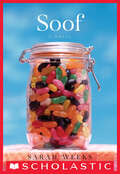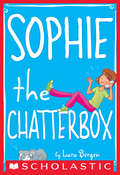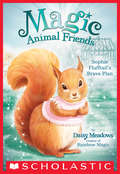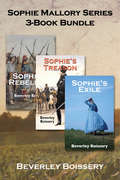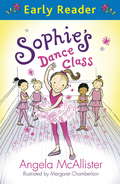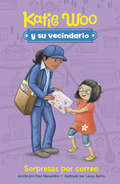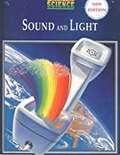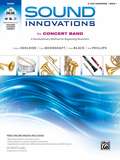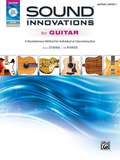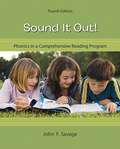- Table View
- List View
Soof: A Novel
by Sarah WeeksIn this stand-alone follow-up to So B. It (now a major motion picture), a girl who the world might see as weird finds her footing and stands her ground.All her life, Aurora has heard stories about Heidi and all the good luck she brought Aurora’s family. Aurora, though, doesn’t feel very lucky. The kids at school think she’s weird. And she’s starting to think her mom thinks she’s weird, too. Especially compared to Heidi.On the eve of a visit from Heidi, more bad luck hits Aurora’s family. There’s a fire in their attic, destroying a good part of their house. And, even worse, Aurora’s beloved dog goes missing. Aurora and her family have always believed in soof—Heidi’s mom’s word for love. But sometimes even when soof is right there in front of you, you still need to find it—and that’s exactly what Aurora is going to do.“A moving exploration of family, love, and forgiveness.” —The Horn Book“A sweet story that shows all you need is soof.” —Kirkus Reviews
Sophie #3: Sophie the Chatterbox (Sophie #3)
by Lara Bergen Laura TallardyMeet Sophie, a little girl with a big goal: to find a title that describes her perfectly. But this isn't quite what she had in mind! Look out --- here's Sophie the Chatterbox! Can Sophie handle the truth? When Sophie fessed up after putting a snake in Ms. Moffly's desk, she learned that being honest pays off! Now it's all truth, all the time for this third-grader. But sometimes the truth hurts. Sophie blabs so much that the other kids in class start calling her Sophie the Chatterbox. (Not exactly the title she had in mind.) Sophie cannot tell a lie . . . but she CAN cause tons of trouble!
Sophie Flufftail's Brave Plan: 5: Sophie Flufftail's Brave Plan (ebook) (Magic Animal Friends #5)
by Daisy MeadowsFrom the mind of Daisy Meadows comes a new fantasy world, with the same great magical voice as Rainbow Magic but brand-new adventures!Best friends Jess and Lily visit Friendship Forest, where animals can talk and magic exists!The girls are thrilled to be back in Friendship Forest, but Grizelda is up to her old tricks with some new helpers -- dragons! When Grizelda's ice dragon casts a spell on the Flufftail family, can Lily and Jess help little squirrel Sophie Flufftail free her family?
Sophie Mallory Series 3-Book Bundle: Sophie's Rebellion / Sophie's Treason / Sophie's Exile
by Beverley BoisseryFollow Sophie Mallory’s adventures during the Lower Canada Rebellion of 1838 as she’s taken prisoner by rebels and must save her imprisoned father. Three acclaimed chapter books by historian and author Beverley Boissery are collected in this special three-book bundle! Includes: Sophie’s Rebellion Rebellion becomes personal for American Sophie Mallory when she’s taken prisoner during a visit to Lower Canada in 1838 but then she is befriended by a young rebel. Sophie’s Treason Following the 1838 rebellion in Lower Canada, with her father missing and his brother arrested, Sophie and Luc must use ingenuity and courage to secure a bright future. Sophie’s Exile In the aftermath of the 1838 Rebellion in Lower Canada, Sophie Mallory sets sail to be with her father, wrongfully convicted of treason and deported to Australia.
Sophie's Dance Class
by Angela McAllister Margaret ChamberlainEarly Readers are stepping stones from picture books to reading books. A blue Early Reader is perfect for sharing and reading together. A red Early Reader is the next step on your reading journey.Sophie loves to dance. She dreams of being a ballerina, and when she receives ballet lessons for her birthday, she hopes her wish to be a real dancer one day might really come true.
Sophie's Dance Class (Early Reader)
by Angela McAllisterEarly Readers are stepping stones from picture books to reading books. A blue Early Reader is perfect for sharing and reading together. A red Early Reader is the next step on your reading journey.Sophie loves to dance. She dreams of being a ballerina, and when she receives ballet lessons for her birthday, she hopes her wish to be a real dancer one day might really come true.
Sorpresas por correo (Katie Woo y su vecindario)
by Fran ManushkinA Katie le fascina recibir correo, y quiere que alguien más sienta esa misma emoción. Hoy va a la oficina de correos para enviarle un regalo de cumpleaños a su abuelo. Por el camino, se encuentra con amigos que han recibido o que van a enviar correo. ¡Los empleados de la oficina de correos están muy atareados!
Sound And Light (Prentice Hall Science Integrated Learning System)
by Prentice-Hall StaffPrentice Hall Science: Sound and Light
Sound Design
by Lawrence Hall of Science University of California at BerkeleyNIMAC-sourced textbook
Sound Innovations for Concert Band, E-Flat Alto Saxophone, Book 1: A Revolutionary Method For Beginning Musicians (e-flat Alto Saxophone), Book, CD and DVD (Sound Innovations for Concert Band Ser. #1)
by Bob Phillips Dave Black Robert Sheldon Peter BoonshaftNIMAC-sourced textbook
Sound Innovations for Guitar, Book 1: A Revolutionary Method For Individual Or Class Instruction, Book, Cd And Dvd
by Aaron Stang Bill PurseNIMAC-sourced textbook
Sound Speech: Public Speaking & Communication Studies
by Terri L. KoontzThis one-semester course includes discussions of the communication process, audience analysis, and public speaking guidelines. Speaking projects include introduction, interview, demonstration, declamation, informational, devotional, and persuasive speeches.
Sound and Light
by Lawrence Hall of Science University of California at BerkeleyNIMAC-sourced textbook
Sound and Light (Science Explorer)
by The Editors at the Prentice HallLearn more about sound and light through these interesting experiments!
Sound it Out!: Phonics in a Comprehensive Reading Program (Fourth Edition)
by John F. SavageThis book covers both the content of phonics and the ways in which it can be effectively integrated into a comprehensive classroom reading program. The text contains practical teaching suggestions for phonemic awareness, phonics, and spelling. The fourth edition features an increased emphasis on technology as it applies to phonics instruction, along with additional focus placed on helping children who have trouble learning acquire basic phonics skills.
Sound/Spelling Cards, Grade 1 and Grade 2 (Into Reading)
by Houghton Mifflin Harcourt Publishing CompanyNIMAC-sourced textbook

